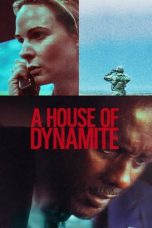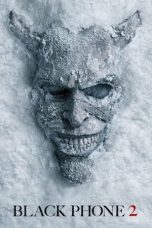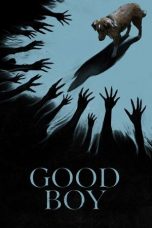Caché (2005) Review: A Haunting Exploration of Guilt and Surveillance
Introduction
“Caché” (2005), directed by Michael Haneke, is a psychological thriller that delves into themes of guilt, surveillance, and the impact of the past on the present. Known for its minimalistic style and unsettling narrative, the film features an exceptional cast including Daniel Auteuil and Juliette Binoche. “Caché” has been acclaimed for its thought-provoking story and its exploration of the hidden aspects of human behavior.
In this review, we’ll explore the film’s plot, themes, and performances, and provide information on where to stream or purchase “Caché” online in the U.S.
Plot Overview
The film begins with a seemingly ordinary family living in Paris. Georges Laurent (Daniel Auteuil) is a successful television host, and his wife Anne (Juliette Binoche) leads a comfortable life with their teenage son. Their routine is disrupted when they start receiving anonymous videotapes showing their house and neighborhood. The tapes are accompanied by disturbing drawings and hints about an incident from Georges’s past.
As Georges and Anne try to uncover the source of these tapes, they are drawn into a mystery that forces them to confront a buried secret from Georges’s childhood. The tension escalates as the tapes and drawings become more intrusive and personal, leading the family to question their safety and the reliability of their own perceptions.
The film builds suspense through its depiction of surveillance and the gradual revelation of the past’s impact on the present. The narrative explores how hidden guilt and unresolved issues can resurface and affect individuals and their relationships.
Themes and Emotional Impact
“Caché” explores themes of guilt, surveillance, and the effects of the past on the present. The film’s central theme is the impact of hidden sins and unresolved issues on individuals and their relationships. The anonymous videotapes serve as a metaphor for the ways in which the past can intrude on and disrupt the present.
The film’s examination of surveillance highlights the invasion of privacy and the unsettling effects of being watched. It raises questions about trust, perception, and the consequences of hidden actions. The tension between the characters and their sense of vulnerability is central to the film’s emotional impact.
The film’s exploration of guilt and the haunting nature of the past creates a sense of unease and psychological tension. The narrative’s slow revelation of secrets and the characters’ internal struggles contribute to the film’s haunting and thought-provoking atmosphere.
Performances and Direction
Daniel Auteuil and Juliette Binoche deliver compelling performances that anchor the film’s emotional and psychological depth. Auteuil’s portrayal of Georges Laurent captures the character’s internal conflict and unease, while Binoche’s performance as Anne adds nuance to the family’s dynamic and their response to the unfolding mystery.
Michael Haneke’s direction is marked by his ability to create a tense and unsettling atmosphere. Haneke’s use of long takes and minimalistic visual style enhances the film’s psychological impact and emphasizes the themes of surveillance and guilt. His direction ensures that the film’s narrative is both engaging and thought-provoking.
The screenplay, co-written by Haneke, effectively builds suspense and explores complex themes. The dialogue and plot development contribute to the film’s exploration of hidden guilt and the impact of the past on the present.
Cinematography and Music
The cinematography by Christian Berger is characterized by its precise and restrained style. The use of long takes and static shots contributes to the film’s sense of unease and emphasizes the characters’ vulnerability. The visual style enhances the film’s exploration of surveillance and psychological tension.
The film’s score, composed by Michael Haneke, is minimalistic and understated. The music complements the film’s atmosphere, adding to its unsettling and haunting quality. The lack of a prominent score enhances the film’s focus on the characters and their emotional experiences.
Where to Watch “Caché” Online in the U.S.
For those interested in watching “Caché,” here are some options to consider for streaming or purchase in the U.S.:
Streaming Services:
- Amazon Prime Video: Check for availability on Amazon Prime Video for streaming or rental.
- Hulu: Monitor Hulu for any potential availability of “Caché.”
Rental and Purchase Options:
- Amazon Prime Video: You can rent “Caché” in HD for approximately $3.99 or purchase it for around $14.99, depending on availability.
- Google Play Movies & TV: The film may be available for rent or purchase on Google Play, with rental options starting at $3.99 and purchase prices around $14.99.
- Apple iTunes: On iTunes, “Caché” can be rented for $3.99 or purchased for $14.99. The film is available in HD, with the option to download for offline viewing.
- Vudu: Vudu may offer both rental and purchase options for “Caché,” with similar pricing to other platforms. The film supports HDX viewing for high-quality playback.
Conclusion
“Caché” (2005) is a haunting and thought-provoking psychological thriller that explores themes of guilt, surveillance, and the impact of the past on the present. With its compelling performances, minimalistic direction, and unsettling atmosphere, the film offers a deeply engaging and reflective viewing experience.
Whether you are drawn to its exploration of hidden guilt and psychological tension, its innovative narrative style, or its thought-provoking themes, “Caché” provides a memorable and impactful film experience. With various streaming and rental options available, it’s accessible for those looking to engage with this influential and evocative film.
















